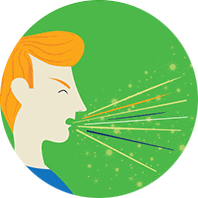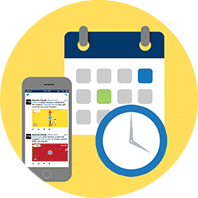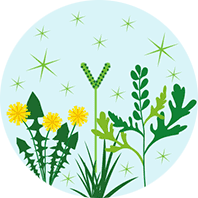
Symptoms
Running a fever is a cold symptom, not an allergy symptom. Allergy symptoms stick around longer than cold symptoms, which typically last for 7 to 10 days.

Timing
Keep track of when your child is suffering to see what might be causing it — could it be indoor (year-round) or outdoor (seasonal) allergens?

Outdoors
Pollen allergies are seasonal, so if your child experiences the same symptoms at roughly the same time every year, keep track to narrow down what might be causing their symptoms.

Indoors
If allergy triggers seem to be indoors, does it happen around pets or dust mite dander? Is there a difference between when they’re in school or daycare?

Genetics
A child has a 50% chance of getting allergies if one parent has them, and 75% chance of getting allergies if both parents do.1, 2
References
American Academy of Allergy, Asthma and Immunology: "Allergy and Asthma Medication Guide."
Asthma and Allergy Foundation of America: "Allergy Testing for Children."










